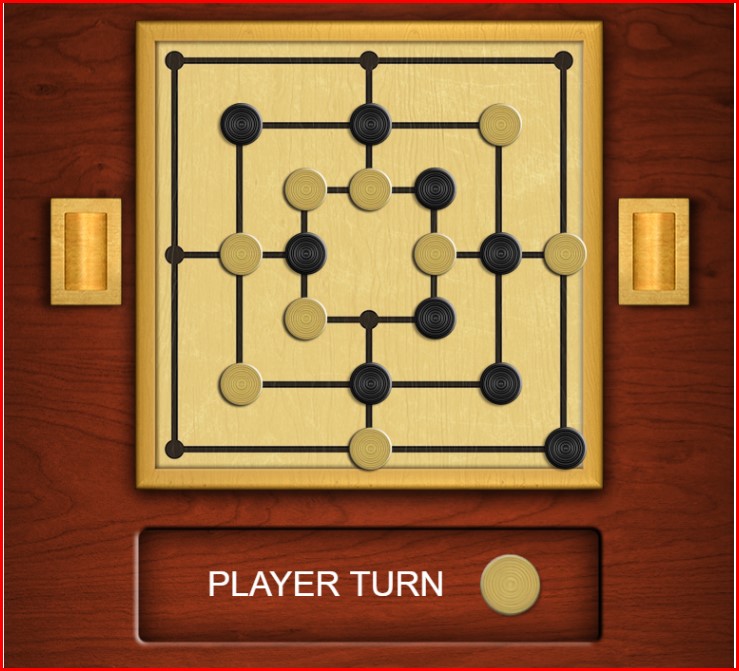The game Nine Men’s Morris, also named as Mill, has been around for at least 1,400 years. It was very popular among the Romans who probably learned about the game through trade routes. The Romans brought this game to central Europe and England where it was very popular in medieval times. In colonial times it was played by soldiers during the revolutionary war and was also popular with children who played it with marbles by drawing the board on the ground.
Here is a print out version of the game board: Nine Men Morris Board

Game pieces:
Nine Men's Morris Guru
Checker pieces can be used as well as marbles, glass beads or any other pieces, provided there are each nine pieces of the same color or shape (e.g. nine nickels and nine dimes).
BOT WARS: If you'd like to have a computer 'win' for you, download 'Nine Men's Morris Future' on the Microsoft store. It's a tough bot. Make sure you set Clubhouse as having the CPU go first. Match the moves for each player on each game. This CPU has been proven to be able to win. STOCK4B-RF / Getty Images Nine men's morris, also called merels or mills, is an abstract strategy game that dates back to the Roman Empire. It is closely related to the board games morabaraba, three men's morris, six men's morris, and twelve men's morris. Players: This is a game for two players.
Rules:
The game is played with two players, each having nine game pieces. The players take turns putting one piece after another on the game board where lines cross or in the corners of the squares. A “mill” is completed whenever three pieces of the same color are in a line (not a diagonal line!). The player having the mill completed can take one of the opponent’s pieces that is not in a mill (exception: the player may take a piece in a mill if there is no free piece).
Nine Men's Morris Solved
When all pieces are placed, the players take turn moving a piece to another location by sliding it to the free next spot. Pieces cannot “jump” over each other at this stage of the game. If a player closes a mill during her or his turn, she or he can take an opponent’s piece (no piece in a completed mill, except no other piece available).
If one player has only three pieces left, a special rule may be applied: The player with only three pieces can “fly” her or his pieces to a desired free spot.
